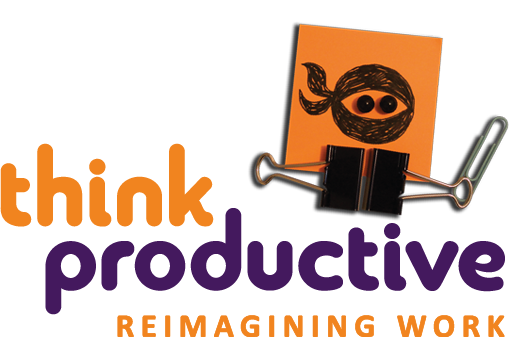Saying “No” to interruptions
Our attention – particularly that proactive attention when we’re most alert, in flow and on top of our game – is arguably our most precious resource. It needs to be nurtured and valued. At the same time, there are a million interruptions out there: emails, phone calls, thoughts, stress, colleagues, social media, the next big crisis, the next big thing. All of them need to be stopped dead in their quest to distract and derail you. Our ruthlessness needs to put pay to a whole lot of temptation too: we often like to be distracted because it’s the perfect excuse for procrastination and thinking less. Facebook or Twitter win over the report we’re supposed to be finishing simply because it’s easier to be in those places, having conversations, than it is to get into the difficult thinking we’re supposed to be engaged in. There’s nothing like a good interruption to keep us busy, unfocussed and distracted from the difficult thinking ahead. And don’t pretend that doesn’t apply to you and that you’re smarter; if it’s not Facebook, it’ll be chatting with colleagues, or something else! So again, dealing with such interruptions is as much about our self-discipline as it is our ability to say “No” to the interruptions of others.
Saying “No” to ourselves
With abundance of information such a problem, being choosy is the only way. It goes against the western, protestant work ethic culture that we’re so familiar with to decide not to do things, but that’s exactly what we must do. A lot. Being much choosier about what we say “Yes” to is an important skill – and learning to say “No” to ourselves means not biting off more than we can chew. If you do get into situations where you’ve bitten off more than you can chew (and I do this regularly, by the way!), it’s about realising that renegotiating your commitments to yourself and others is better than burning yourself out trying to meet them all.
Saying “No” to the 80%
Being ruthless means being selective about how we achieve our goals. Using the 80-20 rule, we can start to recognise that not all of what we do creates an equal amount of impact. 20% of what we do accounts for 80% of the impact. Often, there’s a temptation to aim for perfection. In some areas of our work, this perfection is healthy and even necessary but in other cases, it can be avoided and the impact on the final result hardly even noticed. So we need to be ruthless in our planning. What are we trying to achieve? Has someone else solved this problem before? Could we beg, borrow or steal? What’s the quickest way we can get this item off our plate and move on? These questions lead us towards thinking about innovation and a contempt for the orthodox but with a steely focus only on the end and not on the means, we’ll give ourselves a better chance of saving some time, reducing the energy expended considerably and reducing the final result only by a fraction.
Like this? Try these
Management tips for the ruthless at the Think Productive UK blog
The flow model at Mind Tools

